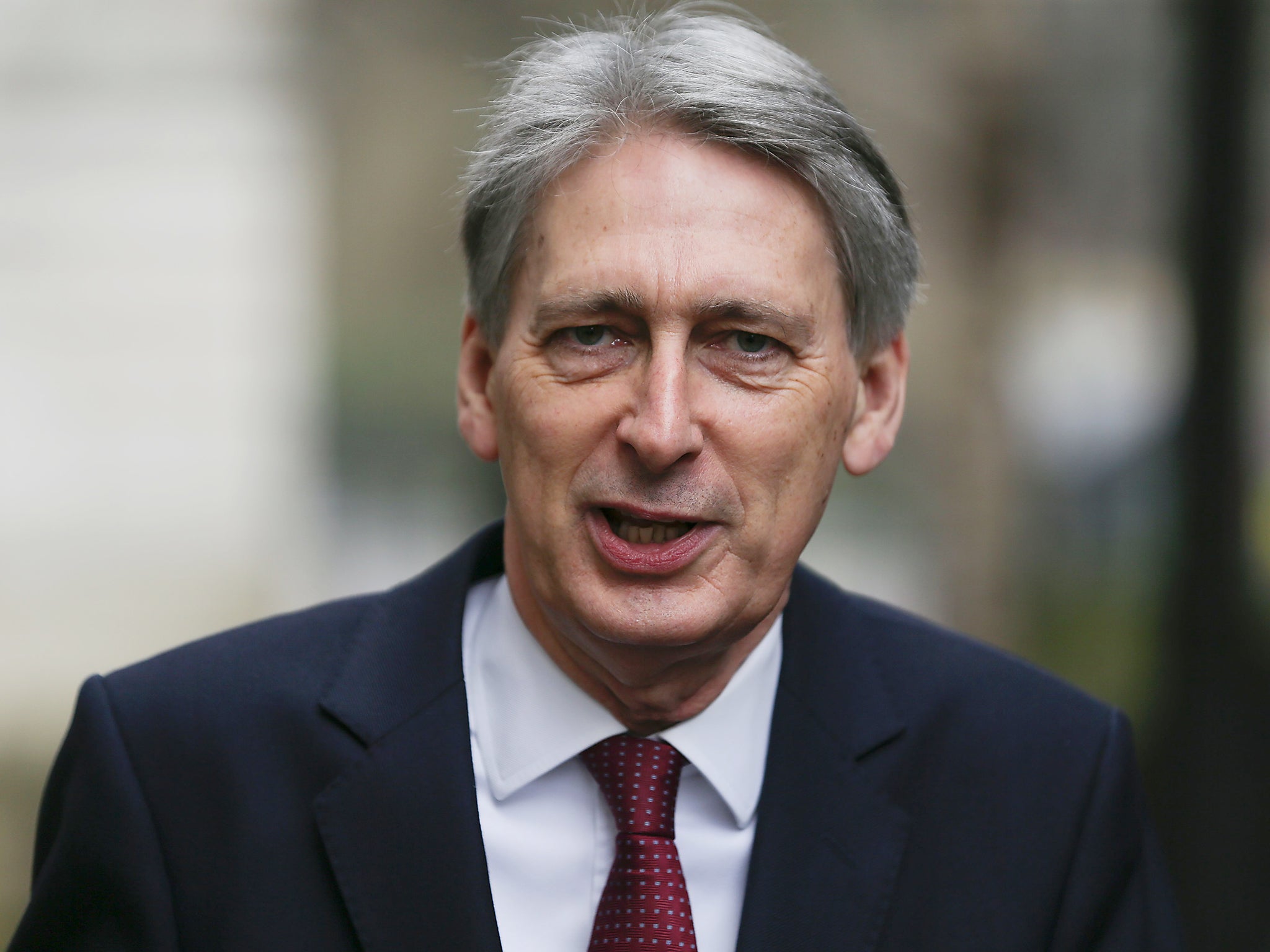Women have bigger fish to fry than Philip Hammond’s ‘hysterical’ comment
Would a man be called hysterical? I can’t see it, myself. Time and time again, it has been used to undermine our arguments; to make us look silly when we voice passionate opinions

Your support helps us to tell the story
From reproductive rights to climate change to Big Tech, The Independent is on the ground when the story is developing. Whether it's investigating the financials of Elon Musk's pro-Trump PAC or producing our latest documentary, 'The A Word', which shines a light on the American women fighting for reproductive rights, we know how important it is to parse out the facts from the messaging.
At such a critical moment in US history, we need reporters on the ground. Your donation allows us to keep sending journalists to speak to both sides of the story.
The Independent is trusted by Americans across the entire political spectrum. And unlike many other quality news outlets, we choose not to lock Americans out of our reporting and analysis with paywalls. We believe quality journalism should be available to everyone, paid for by those who can afford it.
Your support makes all the difference.Mary Creagh is one of my favourite Labour politicians; intelligent, forthright and interesting - exactly the sort of person who could lead the party out from its current state of turmoil. So I felt somewhat sorry for her yesterday when Philip Hammond called her “hysterical” after her comments surrounding Brexit.
I like Philip Hammond and, to his credit, he apologised immediately for the grievance. The trouble is that “hysterical” is a Pandora’s box for women, opening up so many negative connotations. Would a man be called hysterical? I can’t see it, myself. Time and time again, it has been used to undermine our arguments; to make us look “silly” when we voice passionate opinions.
Indeed, there are individuals out there who think that women are inept in their reasoning; that they don’t have the reasoning skills to do their maths homework, let alone lead the country. I saw this for myself last year when I gave a talk on the gender pay gap, in which one of the audience members spouted some dreadfully archaic nonsense about how “emotional” we all are. This he charged at me and my fellow female panelists: an economist, legal editor and academic.
I believe a lot of this bias is to do with feminine traits, which are too often conflated with weakness and other negative characteristics. One of the greatest issues women have is their voices, which are taken - across both genders - as a measure of prowess. Evidence shows that lower voices are perceived to be physically stronger than higher ones.
Most politicians are highly aware of this and try to alter the way they speak. Margaret Thatcher famously had vocal lessons to sound more commanding. If you listen to Hillary Clinton or Theresa May, you’ll notice that they both use low voices, especially when the latter tells off Jeremy Corbyn. The suggestion does seem to be that if you want to be taken seriously in politics, you need to lower your tone, quite literally. As a soprano, I say, what a shame.
Even our height can change people’s impressions of us. It’s much better to be taller in any career, not least for remuneration purposes. Given that we women are five foot five on average compared to five foot ten men, it is much more of an effort to signal command and leadership in certain situations. All of this encourages women to adopt masculine traits, whether trying to speak as low as possible, or even wearing heels in an attempt to create artificial height.
In response to his comment, Creagh has called for the Chancellor of the Exchequer to be reprimanded, but that will achieve nothing – other than reinforcing stereotypes about “emotional” women. The only answer is for Creagh to march on, and for others to flood into politics, too, so that women stop being an anomaly, "hysterical", or otherwise. We have far bigger issues to deal with than silly comments.
Join our commenting forum
Join thought-provoking conversations, follow other Independent readers and see their replies
Comments